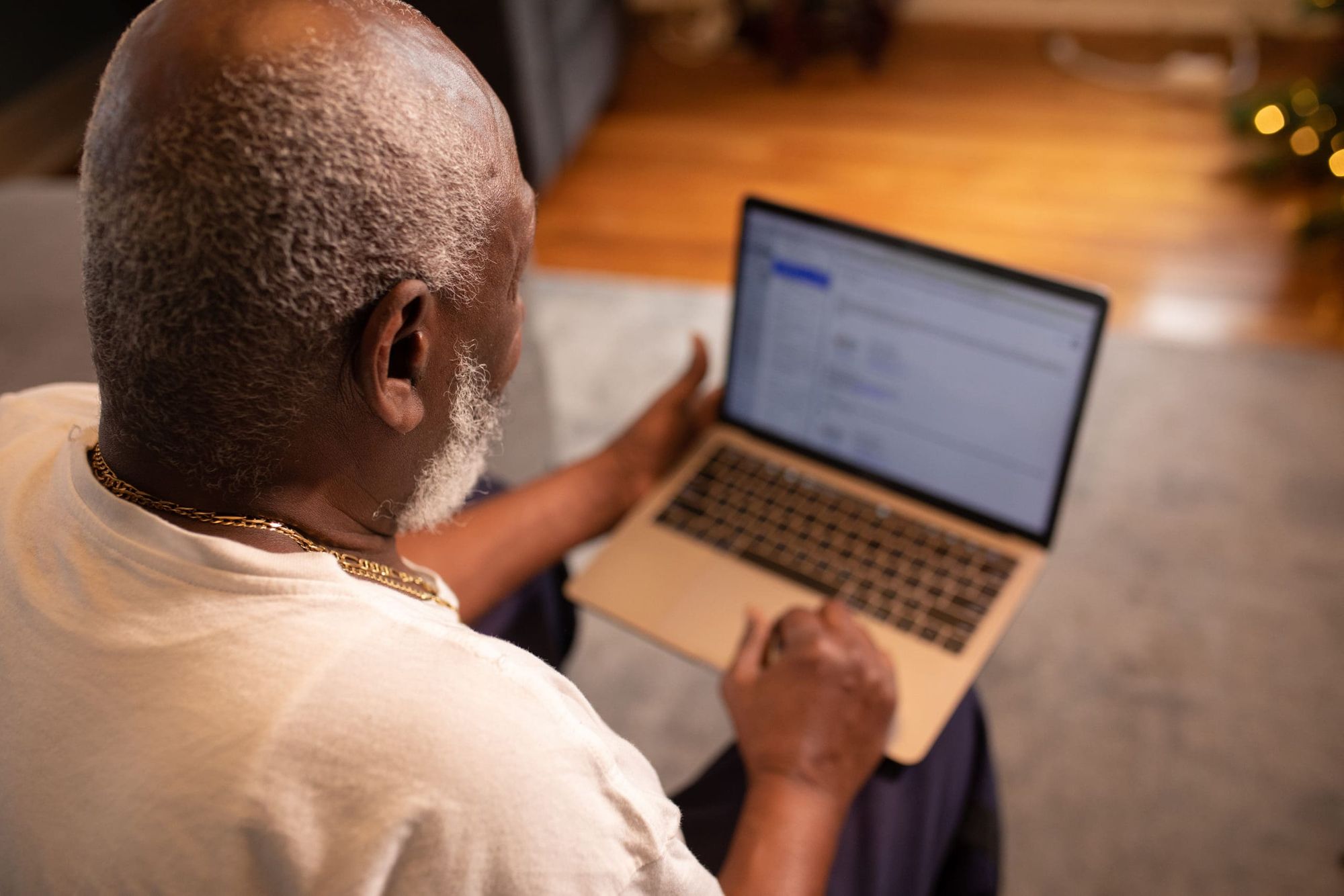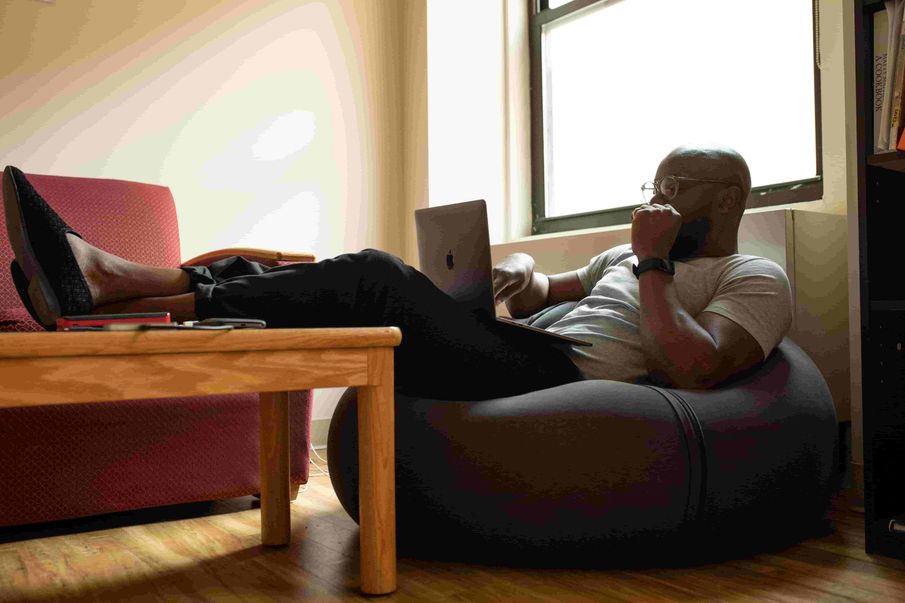New survey results have revealed 80% of Brits feel that working from home has negatively impacted their mental health
I think we can all agree: 2020, as a whole, has been tough. With Covid-19 leading to many being furloughed or losing their jobs entirely amidst a health crisis like we have never seen before, we have all had to make changes to our daily routines and lives.
The results of a new survey by Nuffield Health, the UK’s largest healthcare charity, have revealed that working from home may have significantly impacted out mental health. According to their findings, an overwhelming 80% of Brits feel that working from home has negatively impacted their mental health.
Over a third (36%) of those surveyed said that not being in the same space as colleagues has left them feeling unable to take a break or step away from their workstations, with many feeling they must always be ready to respond quickly from their computers. There are concerns that this may be contributing to higher levels of anxiety, stress and loneliness that many have reported feeling over the past few months.

In early June, the Office for National Statistics (ONS) revealed that 7.4 million of us have reported feelings of loneliness negatively impacting their wellbeing since lockdown began. A further report on Coronavirus and anxiety in Great Britain released by the ONS suggested that whilst overall levels of anxiety have begun to lessen, pressures of homeschooling have lead to a further increase in stress and loneliness.
The latest insights from Nuffield Health show that, whilst we are recognising many of the benefits of working from home, such as saving time and money thanks to the lack of commute, as well as more time to spend with our families, many feel that this prolonged period of working from home may be taking its toll on our mental wellbeing.
Of those surveyed, 25% said they are finding it difficult to cope with the challenges brought about by loneliness and isolation from colleagues. While video calls are still providing a valuable link for many, they could also be creating more stress. 19% of respondents revealed they feel pressured to look good on video meetings.
Finding a work-life balance is also proving to be problematic for many, with nearly a third (30%) finding it difficult to separate their home and work lives. A further 27% reported difficulty in switching off at the end of the day or working week, whilst 34% believe working from home has placed a strain on relationships with their partners or children.
Emotional Wellbeing Prevention and Enhancement Lead at Nuffield Health, Gosia Bowling, commented:
“Those who regularly work from home have established routines and boundaries that help them compartmentalise their personal and professional lives. These things take time to get right and will be different for each individual, but without them, the continuous pressure of work can negatively impact our mental health, which in turn can impact not only our relationships but our physical health.”
Creating work-life boundaries while working from home
To help you foster a more positive mindset, as well as to support your mental health and overall wellbeing, Gosia recommends you try the following:
Create a divide between your work day and home life
“Try to find a way to mark the end of the working day. For example, shut down your laptop rather than leaving it open, switch off your work phone, or close the door to the room where you’ve been working. If you must check-in after the end of the working day, try assigning a specific short period of time to do so.”
By doing this, you can begin to create a mental headspace that will help you to unwind, relax, and prepare for the next day. If work/life balance is a real struggle for you, check out the advice offered by Life Coach Directory.
It can be tempting to check ‘just one more email’ or to reply to ‘just one more message’ from colleagues in a group chat. But, by letting your work day blend into your evening, you risk denying yourself quality time to relax, unwind, and reconnect with loved ones - be that with those you live with, or with friends online.

Increase your communication
“Rather than worrying about stepping away from the computer, take a proactive approach. Tell your colleagues when you’re taking a break for lunch, going for a walk around the block or helping out the children.”
By managing expectations and setting boundaries, you can give yourself peace of mind to take a step back, take a breather, and come back more refreshed and ready to go. Taking a lunchtime walk, or mixing up your tea break with some simple stretches to ease back pain can help you to feel reinvigorated and mentally prepared.
Connect with colleagues in different ways
“We are naturally sociable and like to be with others so using the tech at your disposal can help with this, but always being ‘on camera’ can be draining. Hearing someone’s voice can be just as powerful at connecting as seeing them, so if you’re feeling under pressure to maintain your physical appearance on camera, pick up the phone for a chat instead if you can.”
Keeping the camera switched off for some meetings can help take the pressure off, and may even allow you to focus more on what is being said, rather than trying to keep up with which pixelated colleague is saying it.
Find (and practice) new ways of relaxing
“Relaxation techniques such as meditation and mindfulness can help you become more aware and accepting of your thoughts. Exercise is also a powerful way to help reduce stress and improve mental wellbeing. As exercise needs space, it requires you to step away from your computer, so you benefit from both the mental headspace as well the boost endorphins give to both physical and mental energy.”
Mindfulness and meditation can help us to rewire how we think, increase our overall sense of wellbeing, and support our mental health. If you aren’t sure how to get started, check out these simple mindfulness activities, consider trying your hand at mindful crafting, or find out more about how you can avoid aches and pains with the help of a little stretching, posture tweaks, and regular breaks.
Focus on getting a good night’s sleep
“Poor quality sleep will make you feel more tired, stressed, less energised and more anxious as a result. Having a good bedtime routine will help you to switch off mentally and rest easier, hopefully then waking up with a positive outlook on the day.”
Research from King’s College London has suggested more than half of us have struggled with our sleep since lockdown began. If you’re struggling to get a restful night’s sleep, try these five simple tips, or find out more about how you can overcome insomnia.
If you are struggling with feelings of loneliness, isolation, or anxiety, or feel like your work or personal relationships may have been negatively impacted by recent events, it’s important to know that you aren’t alone. Help is available. To find out more about how talking therapy could help, visit Counselling Directory.


Comments